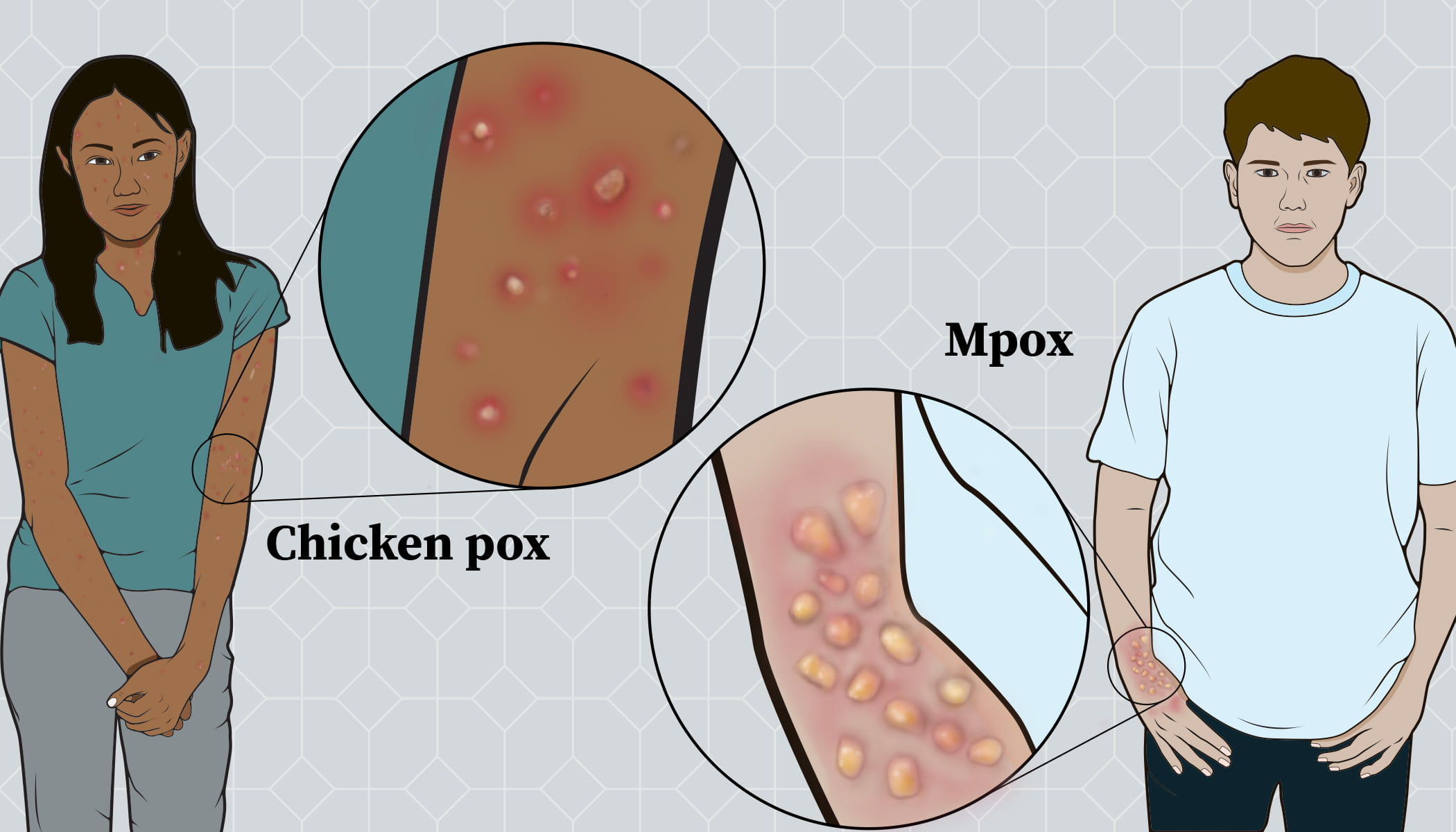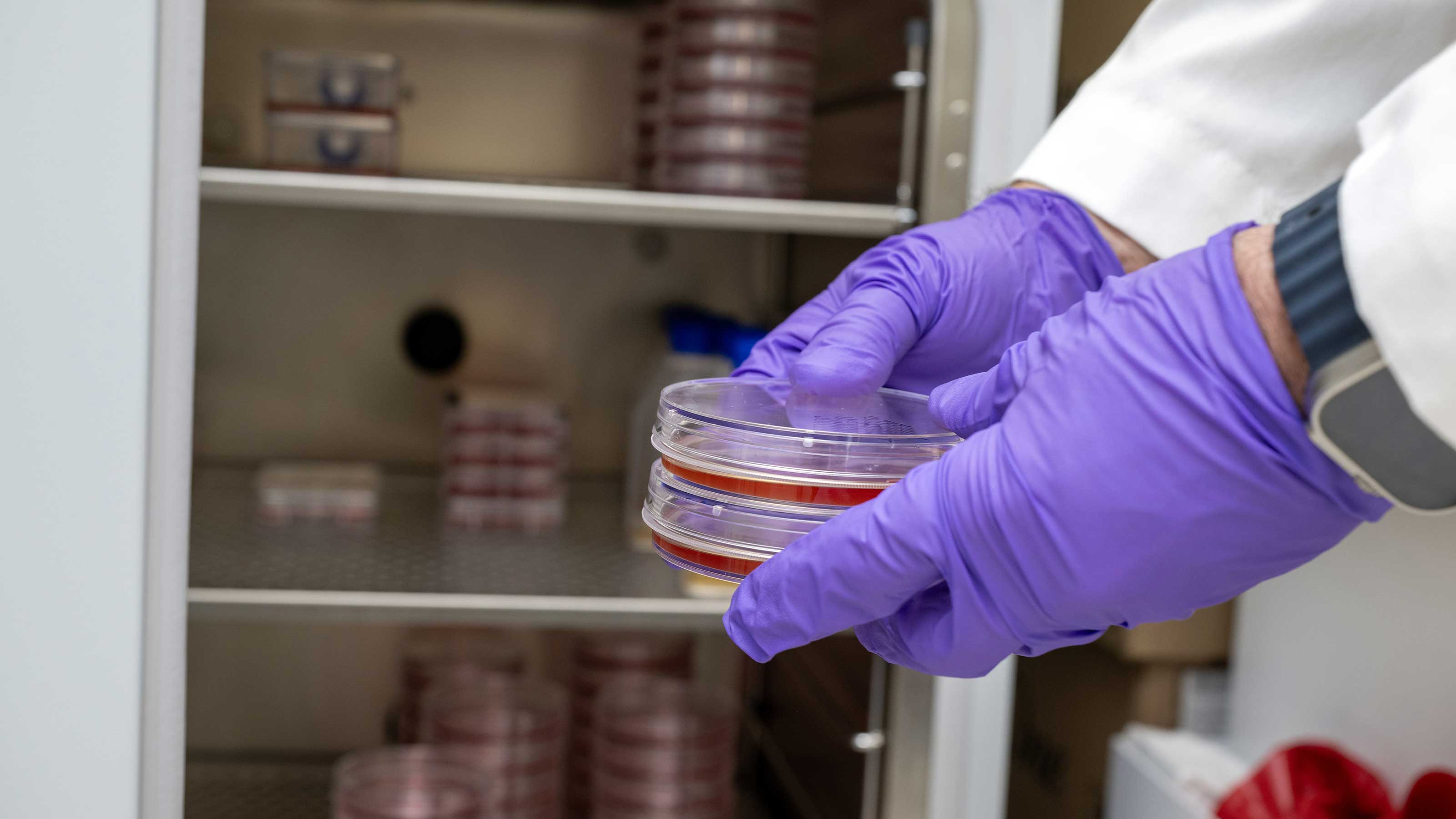
So many things can cause red spots to show up on your skin. Bug bites. Pimples. Ringworm.
Mpox and chickenpox can both spots, and it’s hard to tell the difference between a rash from the mpox virus, also known as the monkeypox virus, and one from the chickenpox virus.
Both viruses, start with a fever before any marks that look like blisters or pimples appear. Usually, the sores fill with fluid, get bigger, then scab over and disappear. Mpox sores are usually larger than sores from chickenpox, and they’re deeper in the skin.
Mpox sores show up all at once, but chickenpox sores arrive in waves. With chickenpox, some spots might appear on your chest, back and face, then you notice your forearm is dotted, then maybe your legs. Not all chickenpox sores will be in the same stage, while mpox sores progress at the same time then scab over all at once.
Typically, mpox sores are extremely painful, and chickenpox sores are just very itchy.
Chickenpox sores usually last about two weeks, and mpox sores usually last two to four weeks.

Where did mpox come from?
Mpox, as its name suggests, first infected animals (primarily rodents and monkeys) before it affected people. Although mpox has been known to be in western Africa for many years, the first confirmed cases in the United States were in 2003. That year, infected prairie dogs from Africa arrived in the United States, causing a small outbreak with 47 confirmed cases.
A more recent outbreak in the United States happened in 2022, when it was considered a public health emergency in the United States and worldwide.
The World Health Organization’s declaration of a “public health emergency of international concern” on Aug. 14, 2024, was due to an unprecedented outbreak in Africa and hasn’t affected the United States.
Chickenpox has been around for hundreds of years. A vaccine to prevent it was developed in 1995. It’s no longer a common disease, even among children, the main population it affects.
How do the viruses spread?
Both the chickenpox virus and the mpox virus are spread by direct contact with the sores or body fluids of an infected person or an infected animal. With mpox, the sores tend to be in very sensitive areas, including on genitals, in the rectum and in mucous membranes. The sores from chickenpox can turn up anywhere on your body.
While the confirmed cases of mpox in the United States have been almost exclusively men who had sex with other men, mpox is not a sexually transmitted disease. You can get the virus through direct contact without having sex.
Is there a vaccine for mpox?
Vaccines can prevent both chickenpox and mpox. Because mpox is so similar to smallpox, a vaccine for smallpox known as Jynneos is being used to help people fend off mpox. But with such a limited supply of the vaccine, it’s available only to the highest-risk individuals right now. The vaccine is considered safe and effective and is really our best tool to protect against mpox. When the vaccine is available to you, I strongly recommend getting it.
What is the treatment for mpox?
What I hear from a lot of patients is that mpox is very painful, so if you get mpox, you might take pain relievers. Although there’s no medication approved specifically for mpox, some medications used to treat smallpox may be effective with mpox.
If bumps appear on your skin and you’re concerned it could be either mpox or chickenpox, contact a health care provider. They can take some of the fluid from the sores and test it to see whether you have either one of the two viruses or something entirely different.





